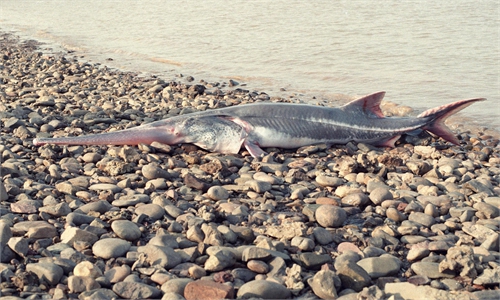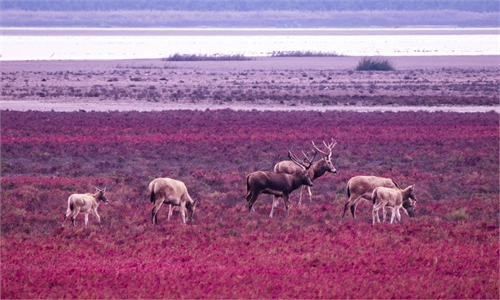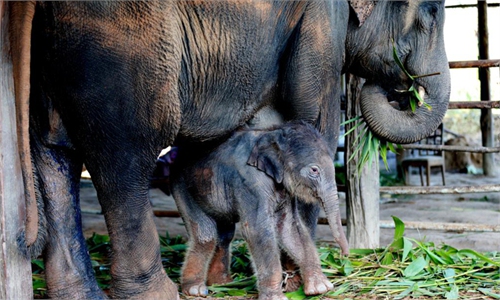
The world's only brown panda bred in captivity, named "Qizai," belongs to an extremely rare subspecies found in the Qinling Mountains, Northwest China's Shaanxi Province. Photo: Xinhua
Wildlife populations have declined by nearly 69 percent since 1970, shows a report released by the World Wildlife Fund (WWF) on Thursday, the latest warning about the loss of biodiversity globally and nature crisis that require immediate actions from governments, businesses and the public to halt and reverse the decline.
According to the report the Global Times received from the WWF, there was an average 69 percent decrease in monitored wildlife around the world between 1970 and 2018. The 2022 WWF Living Planet Index tracks trends in the abundance of mammals, fish, reptiles, birds and amphibians around the world.
The index monitors nearly 32,000 populations of 5,230 species across the planet. The scale of monitoring data is the largest to date, said the report.
Latin America and the Caribbean show a 94 percent decline in average population abundance, while freshwater species populations having seen the greatest overall global decline, with an average decline of 83 percent in just a few decades.
In Africa, the population of eastern lowland gorillas in Kahuzi-Biega National Park in the Democratic Republic of Congo declined by about 80 percent between 1994 and 2019. In South and Western Australia, number of sea lion pups fell by two-thirds between 1977 and 2019.
The report noted that the main factors in the decline of wildlife populations are habitat degradation, exploitation, invasive species, pollution, climate change and disease worldwide. These factors cause 66 percent decline in African wildlife and the 55 percent decline in the Asia-Pacific region as a whole.
"Today we face the double, interlinked emergencies of human-induced climate change and the loss of biodiversity, threatening the well-being of current and future generations," said Marco Lambertini, Director General WWF International.
The report calls on policymakers to implement economic transformation policies that fully value natural resources and businesses to carry out human rights and environmental due diligence across their supply chains, ending subsidies that encourage activities that degrade ecosystems, and shifting to sustainable production and consumption.
"The Living Planet Index reveals that the nature is declining at an alarming rate. China is not only rich in biodiversity, but also leading the world's largest green and low-carbon economic transition," said Lu Lunyan, Chief Operating Officer of WWF Beijing Office.
China will establish the world's largest national park system with more national parks to be built, Chinese authorities said on Wednesday, which marked the first anniversary of the establishment of the initial batch of national parks in the country, during which period the number of wild animals in the territories have greatly increased.
Lambertini stressed the importance of the long-awaited the 15th conference of the UN Convention on Biological Diversity (COP15) in December 2022 under the presidency of China, which is key for the world leaders to ensure the right level of ambition and measurability in the goals and targets of the agreement.




